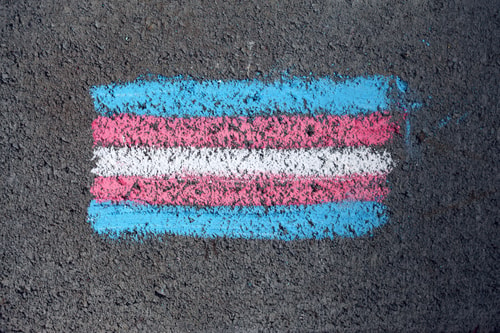For the first time since the creation of the Scottish parliament, the UK government has enacted a Section 35 order under the Scotland Act 1998, blocking the passing of Scotland’s Gender Recognition Reform (Scotland) Bill as they believe it has “adverse effects” on the rest of the UK – therefore falling outside of the powers of the Scottish parliament.
In December 2022, after around 140 proposed amendments to the Bill were debated and voted on, the Scottish parliament voted to pass the Gender Recognition Reform (Scotland) Bill into law by 86 votes to 39.
In short, the Bill would make it easier for someone to successfully apply for a gender recognition certificate (GRC), a document which legally recognises someone’s changed gender identity. This means a GRC holder can change documents such as their birth certificate.
The Bill alters the application process in several ways:
- Removes the requirement to have had a medical diagnosis of gender dysphoria.
- Reduction in the time period one must live in their acquired gender before applying, from two years to six months (six months for applicants aged 16 and 17) along with a three month reflection period.
- Removes the requirement for an applicant to prove through evidence that they have lived in their acquired gender before applying.
- Reduction in the minimum age of application from 18 to 16.
- Introduction of a criminal offence for a false application.
- Includes provisions about those who have had a change in their legal gender identity recognised overseas applying for a GRC in Scotland.
On 17 January 2023, Secretary of State for Scotland Alister Jack announced that the UK government was using powers under Section 35 of the Scotland Act 1998 to block the Bill from becoming law in Scotland, because they believed that the Bill in Scotland would likely have an “adverse effect on the operation of the law as it applies to reserved matters” – meaning, they are advised that it would likely have impacts upon the rest of the UK, which Scotland does not have the power to make law for. The Section 35 power has never been used before.
The UK government believes that issues would arise under the Equality Act 2010 (which covers the whole of the UK) through the effects of having no single system of gender recognition across the UK and the subsequent legal implications of this (as a GRC changes a person’s sex “for all purposes”). The Scottish government has said that the Bill does not change exemptions under the Equality Act where single-sex services can exclude trans people if it is proportionate to do so.
It is now therefore inevitable that the Scottish government and the UK government will challenge each other in court to determine if the UK government’s use of Section 35 was lawful.
The issues of gender recognition and devolution/Scottish independence are unrelated. It is deeply problematic that they are now being conflated through this dispute, because both are deeply important and challenging issues that deserve to be debated and worked on by MSPs and MPs separately. The reality is that they are now interlinked.
As Christians we should speak into this debate with great care and sensitivity. We should never marginalise those who have challenges with their gender identity further in their lives than they already experience with unfounded assumptions about what they are like.
Likewise, we should never shut down concerns from women and girls about their safety (especially when men like myself do not experience dangers to my safety in the same way) by labelling their concerns as transphobic when their concerns are regarding men exploiting loopholes in the legislation, not transgender people themselves.
We have to get to a point where we are not pitting the rights of one group against another. Polling has found that two thirds of Scots don’t think the Bill should become law. There are divisions within the SNP, Conservatives and Labour on the Bill. We have only had the interim report of the Cass Review into NHS gender identity services for children and young people. There is absolutely no way these issues can be discussed and worked on fully and properly, as they should be, when they are bound up within the debate on Scottish independence.
We represented our membership to the Equalities, Human Rights and Civil Justice Committee in the Scottish parliament when the Bill was going through the legislative process. We strove to express our concerns about the Bill in a way that reflected Jesus – challenging yet loving – and we still think the Bill isn’t the right way forward.
How should we respond to this situation?
All across the UK in churches, schools, communities and families we will no doubt be discussing these huge political and cultural developments. The gospel speaks into all of them; we need to go above and beyond to listen, and to listen more to those whose life experiences are different from our own. Then we can talk about how Jesus changes everything about our perspective. We can discuss these very difficult issues with those who we disagree with because Jesus did this first, and we follow His example.
How amazing is it as believers in Jesus to dwell on the future new Heaven and new Earth:
“’He will wipe every tear from their eyes. There will be no more death or mourning or crying or pain, for the old order of things has passed away” (Revelation 21:4).
This beautiful, eternal perspective gives us the freedom to do the very best we can for all of the most vulnerable people in our society – may we be known for this, and to reflect Jesus by doing so, and sharing what He has done for us.



